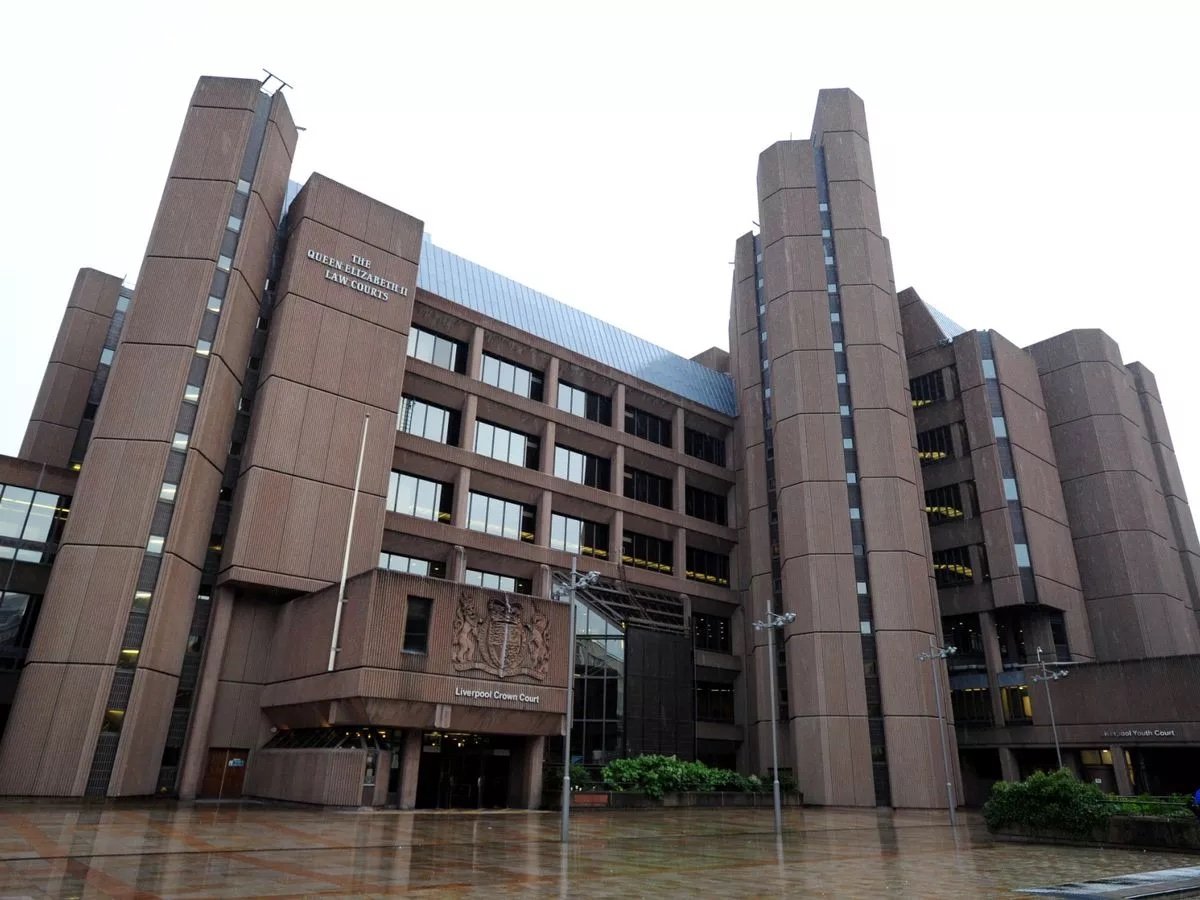
Youth Court
Facing the prosecution can be pretty scary, especially for young people. In this page your will hear from Jake, a young person who talks about what happened when he got in trouble with the police and had to go to court. He explains the rules he had to follow, like showing up on time and being respectful. Jake shares what it was like waiting in court and who was there to help him, like his solicitor. He also talks about the importance of making a good impression in court and what might happen afterward. Through Jake's experience, you will learn about the legal system and what to expect if you ever find themselves in a similar situation.
A short film on what to expect at the Youth Court
I was arrested by the police and had to go to court. This is what happened to me. (Jake)
I had to go to court because the police thought I broke the law.
I got bail conditions which I had to stick to. They told me I could get into more trouble if I didn’t.
I was told what day and time to be at court. I was also told that if I didn’t attend:
The court will ask the police to find and arrest me
I could be charged for missing court and that I might have to stay in a police cell until the next court
That I might not get bail in future and that the trial could start without me and I wouldn’t be able to tell your side of the story
If you cannot attend the Court, it’s important that you inform the Court the reason why. You can do this through your solicitor before the hearing. If you are ill on the day and don’t appear in Court, you may have to produce a sick note from a doctor.
Which Court did I go to?
I had to go to the Youth Court which is in the QE2 Court building, Derby Square in Liverpool City Centre. The Youth Court is smaller and less formal than adult Courts. If you are accused of a really serious offence, you might have to go to Crown Court.
What happened on the day of the court appearance?
First up – I got there a bit early because I was told it’s not good to be late for Court. When I arrived at court there were some security checks – I made sure I didn’t have anything on me that could be seen as a weapon (sharp objects or glass bottles). You have to come with an adult (usually a parent or carer). One of my friends came with me but he wasn’t allowed in so my mate had to wait outside for me. Looking back, it’s best not to bring friends along with you.
Once I got through security, I found a Court Usher. They were dressed in a black gown, carrying a clipboard. They told me where to wait and let the court know that I had arrived. They asked me who my solicitor was and got them to come and talk to me before going into court.
I came prepared for some waiting around as I knew there would be other young people in court on the same day as me and they might get dealt with before me. I was hoping I might get lucky and be dealt with first but I scrolled through my phone in the waiting area and tried to chill a bit while I was waiting. This helped me not to get stressed because I had to wait longer than wanted – most of the morning in fact. Luckily, I remembered to turn off my phone before I went into the court room. It’s a good job as well because I had three missed calls when I was in there.
Who was in the courtroom?
There were two magistrates. I was told that Magistrates are people who decide what would happen to me and they get special training to help them to deal with young people. I thought they were going to give me a lecture but they were Ok, I guess. My solicitor was there as well and a Prosecutor who talked about why the police think I broke the law. There was also Legal Advisor and an usher in court and someone from the Youth Justice Team. I was relieved that no-one from the newspapers was there as I was told that, on very rare occasions, they be in court. I got told afterwards, though that, even if they were in court, they would not be allowed to name me in the news. My mum came to court with me and I was allowed to sit next to her.
Why did I need to have a solicitor?
I didn’t really want a solicitor when I got arrested but the police said I had to have one. I’m glad I did though because my solicitor helped me prepare for Court and she spoke up for me. She told me what to do and say in Court. l did not have to pay for a solicitor – solicitors are free for young people.
If you don’t have a solicitor on the day of your court appearance, you should tell the usher that you want to speak to the duty solicitor.
What happened when I go into the Courtroom?
I was shown where to sit and told when I had to stand and sit down. I was asked to say my name, address and date of birth. At my first court appearance, I was asked to say whether I was guilty or not guilty. I was told that sometimes they can deal with your case on the day but, because my offence was more serious, they put it off until another day so that the Youth Justice Team could prepare a report. After the report got done, I had to go back to court. When I went into the court room, the prosecutor spoke about what I had done and then my solicitor got a chance to speak up for me about things that were going on in my life which led to me getting into trouble. She also told the court some good things about my life. After that, the magistrates asked me some questions. They asked me about school. They were alright I suppose.
How can I make a good impression?
First impressions count and if you have broken the law, the court might want to see that you understand why this wasn’t good and that you are sorry for what you did and that you want to try not to get into trouble again. Check out some of these tips:
Dress smartly if you can.
Make sure your phone is switched off before you go into the Court room.
Keep your hands by your side, not in your pockets.
Don’t chew gum.
Take off your hood or baseball cap before you go into court.
When speaking to the Magistrates, address them as ‘Sir’ or ‘Madam’.
If you are sorry for what you have done, tell them.
Bring references from others if you have them (for example from a teacher, your boss at work, youth workers)
If there is a victim of your crime, write a letter of apology and bring it with you so that the court can see that you understand the harm you have caused and that you are really sorry.
Write a letter to the judge/magistrates telling them how sorry you are for what you did.
Do your best to co-operate with the Youth Justice Service if the Court asks for a Pre-Sentence Report.
What might happen to me?
It depends! If you plead Not Guilty, you’ll have to have a trial and the court will decide on who they believe. If the court decides that you are Not Guilty, you are free to go.
If you are guilty, you might get a fine or you might have to meet with the Youth Justice service.
If your offence is really serious the Court might sentence you to TIME in a secure unit or Young Offenders Institution. The Court can only do this if there is no other option and they will want to know more information about you before they can make this decision so they will ask for a Pre-Sentence Report which someone from the Youth Justice Service will write. This is what happened to me. Remember - you need to cooperate with your worker to do this.
When I went to Court, I got a 9 month Referral Order.
Further Support
Merseyside Police
Phone: 999 in an emergency
a serious offence is in progress or has just been committed
someone is in immediate danger or harm
property is in danger of being damaged
a serious disruption to the public is likely
Phone: 0800 555 111 for Crimestoppers
For more information about Police UK search Police UK in this directory.
Visit the Merseyside Police website
Catch 22
Offender management, violence reduction interventions, rehabilitation and victim services. Working with young people and adults, we provide intervention services in custody and in the community that are focused on building strong, consistent and trusting relationships to help unlock potential and make positive changes in life.
Phone: 020 7336 4800
Email: Peopleservices@catch-22.org.uk
For more information about Catch22 search Catch22 in this directory.
Visit the Catch22 Facebook page
Wirral Youth Justice Service Prevention Work
YJS prevention work is completed on a voluntary basis with young people aged 10 to 18 years who are involved in Anti-Social or Offending Behaviour.
Who is eligible and how can I make a referral to Prevention Services?
In order to be eligible for support young people must be involved in either 1,2, 3 or 4:
1 - Persistent high level ASB (consider checking with Wirral Anti-Social Behaviour Team)
2 - Behaviour which could have resulted in a prosecution (including regularly carrying weapons)
3 - Violence on parents/carers
(if this is the key issue then please contact Tim Collins 666 4918 for the referral form for this service)
4 – Concerning
(not harmful) sexual behaviour (those committing harmful sexual behaviour should be referred on the Changing Futures referral form and should contact Ann Ainscough or Patricia Wootton via our main number 666 3466
Additional Factors
School Factors – NEET, Exclusion or Risk of, Very low school attendance
Drug / Alcohol use impacting life chances
Peers or Family committing offences / Risk of Criminal Exploitation (CE)
Adverse Childhood Experiences (ACES)
Referrals for the YJS Prevention Services should be completed on the Youth Justice Service referral form. Please call 0151-666-3466 for more details.


